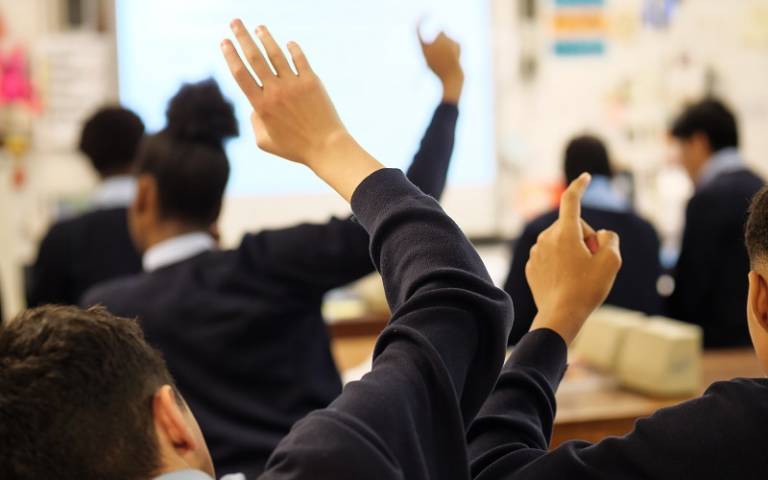New book examines children’s rights education in diverse classrooms
15 April 2021
A new book by UCL Institute of Education (IOE) academic Professor Hugh Starkey and IOE alumnus Dr Lee Jerome (Middlesex University) has been published examining how children’s rights education is implemented and the principles behind it.

Taking the United Nations Convention on the Rights of the Child as a starting point, the authors outline a series of teaching and learning approaches that are values-informed, aligned with children's rights and focused on quality learning. They address the question of what implications follow for teaching in schools if the starting point is that children are rights holders and teachers are duty bearers.
Dr Jerome and Professor Starkey argue that the United Nations Convention on the Rights of the Child provides widely agreed standards and a language that children and educators can use to navigate competing cultures of accountability. These principles foreground education’s purpose as a social process to meet the needs and challenges of individuals and communities.
‘Children's Rights Education in Diverse Classrooms: Pedagogy, Principles and Practice’ looks at how children’s rights culture is developed in schools and diverse classrooms around the world. It reviews evidence from international evaluations, surveys and case studies about practice in human rights and child right education. It draws on the work of eminent educational theorists to provide an accessible framework that can guide the development of child rights education.
Paula Gerber, Professor of Law, Monash University in Melbourne, Australia writes: "The authors have created a masterpiece filled with inspiring ideas and illustrations of how educators can infuse children's rights education into their teaching practices.”
Children's Rights Education in Diverse Classrooms: Pedagogy, Principles and Practice was published by Bloomsbury on 8 April 2021.
Links
- Children's Rights Education in Diverse Classrooms: Pedagogy, Principles and Practice
- View Professor Hugh Starkey’s research profile
- View Dr Lee Jerome’s profile
- Department of Curriculum, Pedagogy and Assessment
Image
Phil Meech for UCL Institute of Education
 Close
Close

